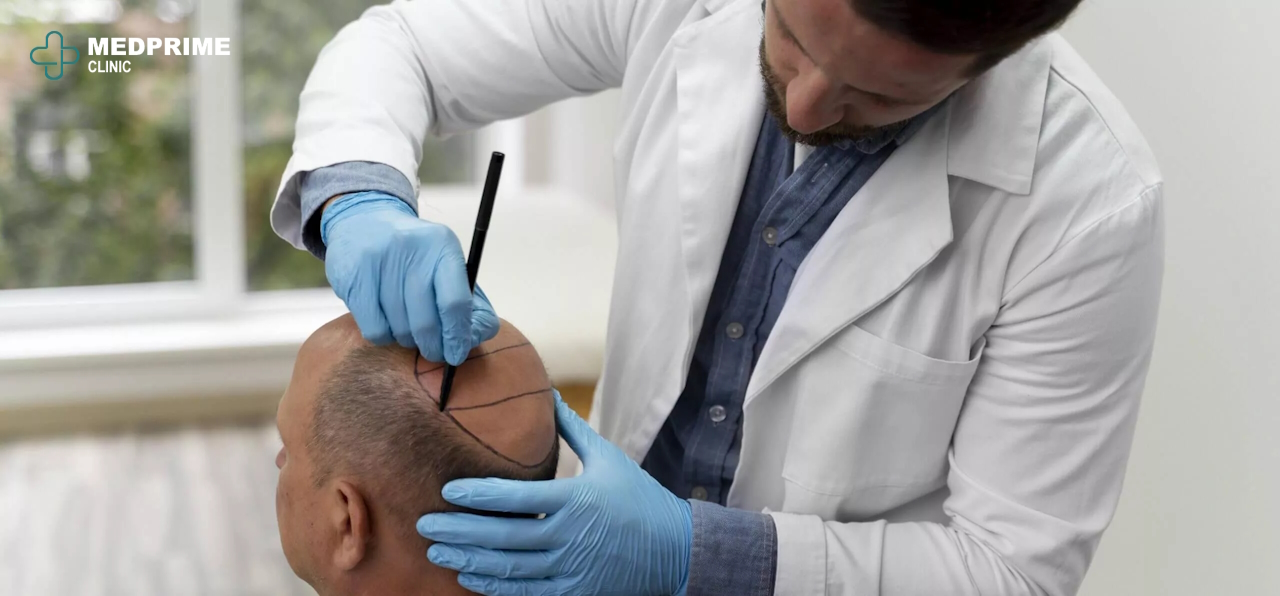Embarking on a hair transplant journey can be both exciting and nerve-wracking. It's natural to have questions and concerns about the procedure, its effectiveness, and the overall process. In this guide, we aim to address some of the common concerns individuals have when considering a hair transplant, providing you with the information you need to make an informed decision.
1. Will the Results Look Natural?
 One of the most common concerns is whether the results of a hair transplant will look natural. Skilled hair transplant surgeons utilize advanced techniques, such as Follicular Unit Extraction (FUE) and Follicular Unit Transplantation (FUT), to ensure that the transplanted hair blends seamlessly with your existing hair. With careful consideration of hairline design and graft placement, the results are often indistinguishable from natural hair growth.
One of the most common concerns is whether the results of a hair transplant will look natural. Skilled hair transplant surgeons utilize advanced techniques, such as Follicular Unit Extraction (FUE) and Follicular Unit Transplantation (FUT), to ensure that the transplanted hair blends seamlessly with your existing hair. With careful consideration of hairline design and graft placement, the results are often indistinguishable from natural hair growth.
2. Is the Procedure Painful?
Pain associated with a hair transplant is generally minimal. Local anaesthesia is administered to ensure your comfort during the procedure. You may experience some mild discomfort during the recovery phase, but this can usually be managed with prescribed pain medication.
3. How Long is the Recovery Period?
The recovery period after a hair transplant varies from person to person. Generally, you can expect to return to work within a few days to a week. The initial healing phase, including scabbing and shedding, takes a few weeks. However, it's important to note that the full results of a hair transplant can take several months to a year to fully develop.
4. Will I Have Noticeable Scarring?
With modern techniques like FUE, scarring is minimal and often not noticeable. FUE involves extracting individual hair follicles, leaving tiny, dot-like scars that are easily concealable even with short haircuts. FUT, which involves a strip of scalp removal, can leave a linear scar, but skilled surgeons take measures to ensure it's well-hidden within your hair.
5. Am I a Suitable Candidate?
Individual suitability for a hair transplant varies based on factors such as the degree of hair loss, hair type, and overall health. Consult with an experienced hair transplant professional to determine if you're a suitable candidate. They'll assess your unique situation and provide recommendations tailored to your needs.
6. Will the Transplanted Hair Fall Out?
Yes, the transplanted hair will initially shed within a few weeks of the procedure. This is a normal part of the hair growth cycle. The follicles, however, remain active, and new hair growth will gradually emerge in the coming months. Patience is key during this phase.
7. How Much Does It Cost?
The cost of a hair transplant can vary based on factors like the surgeon's experience, location, and the extent of the procedure. While it's an investment, many individuals find it's a worthwhile one. Consider the long-term benefits of restored confidence and improved self-esteem.
8. Can Women Undergo Hair Transplants?
Absolutely. While often associated with men, women can also benefit from hair transplants. Female pattern hair loss and other conditions can be successfully addressed through similar techniques. Consultation with a skilled surgeon will determine the most appropriate approach.
9. Are the Results Permanent?
Yes, the results of a hair transplant are generally considered permanent. The transplanted hair follicles are often resistant to the hormone responsible for hair loss. However, it's important to note that existing, non-transplanted hair might continue to thin over time, so ongoing maintenance and follow-up might be recommended.
10. How Do I Choose a Skilled Surgeon?
Choosing a skilled surgeon is paramount for a successful outcome. Look for professionals who are board-certified, have a solid track record, and can provide before-and-after photos of their work. Personal recommendations and online reviews can also offer insights into the surgeon's reputation.
In conclusion, addressing common concerns surrounding hair transplants is essential for making an informed decision. By arming yourself with accurate information and consulting with experienced professionals, you can embark on a hair transplant journey with confidence, knowing that you're taking a step towards enhancing your appearance and self-esteem.
